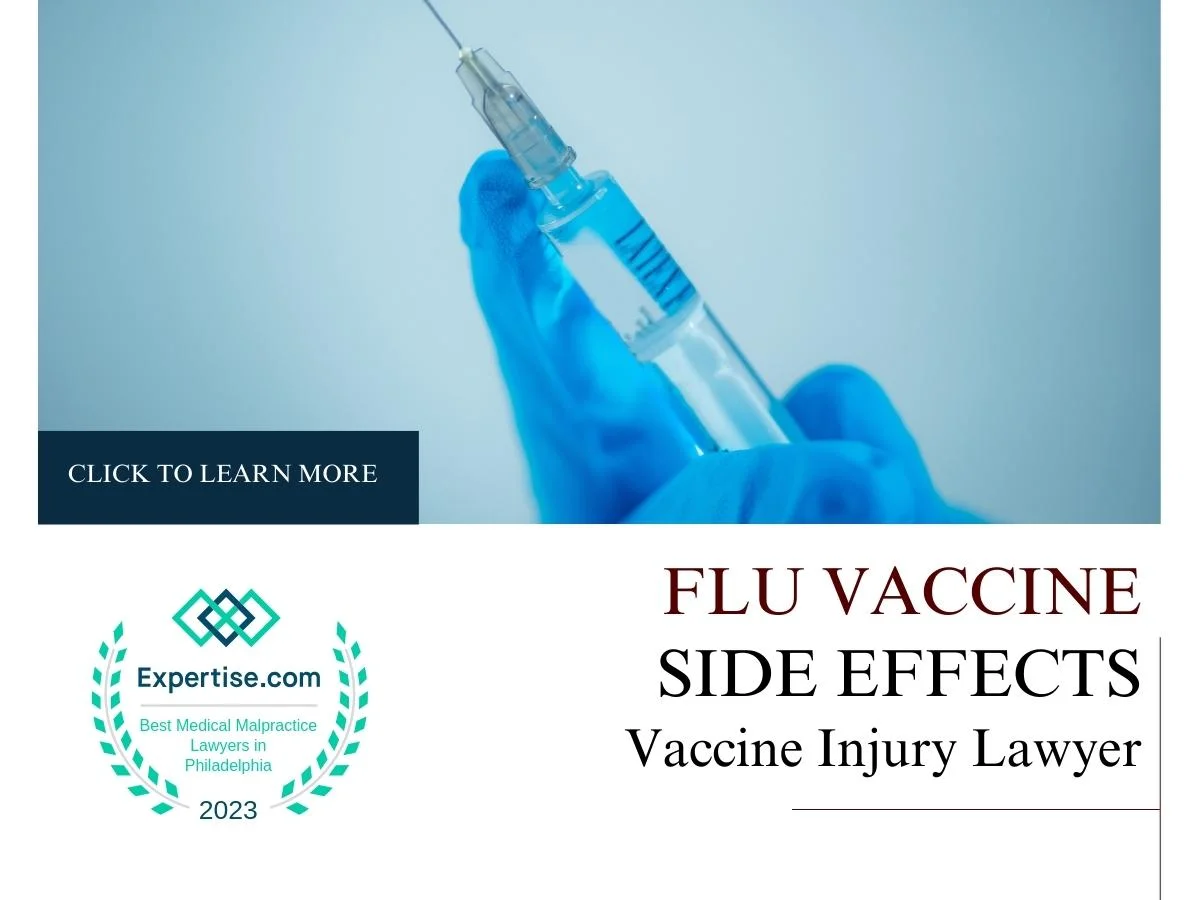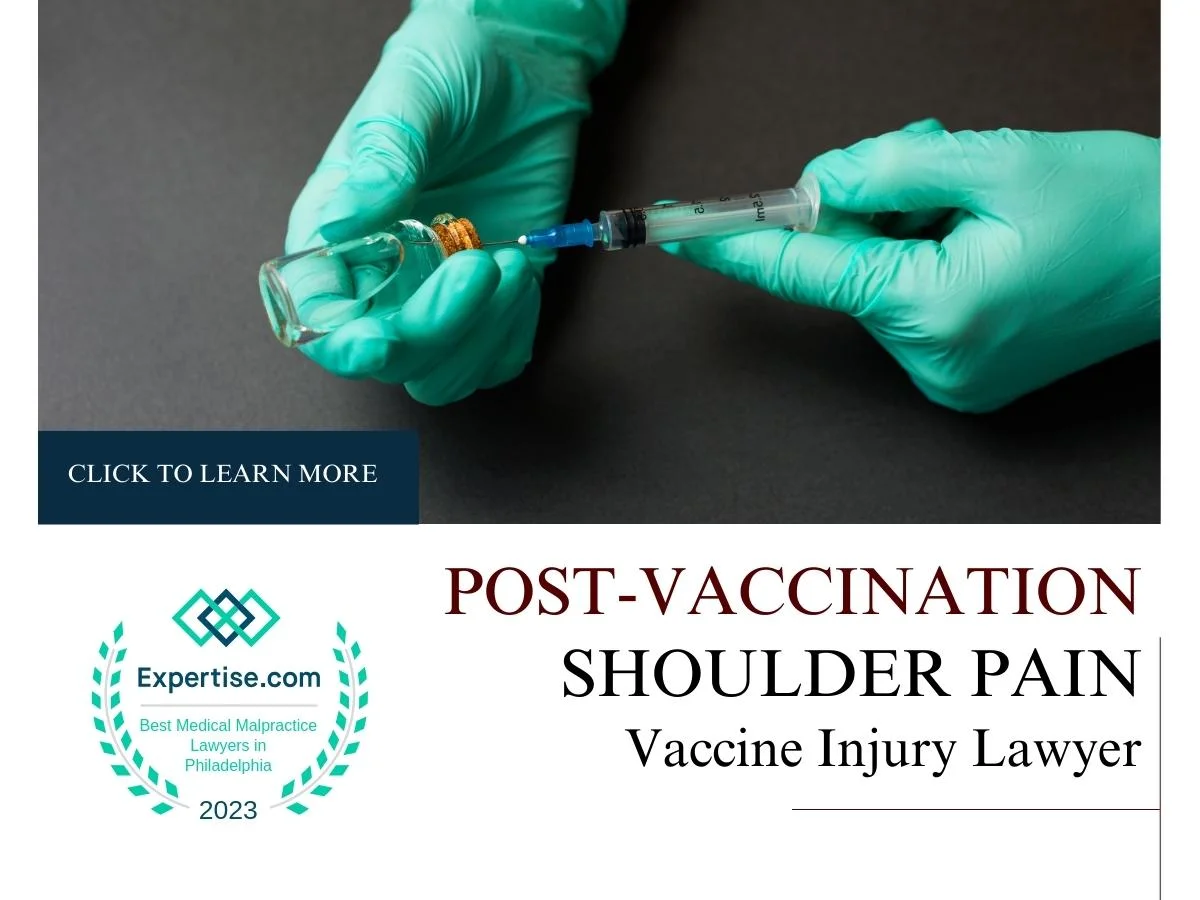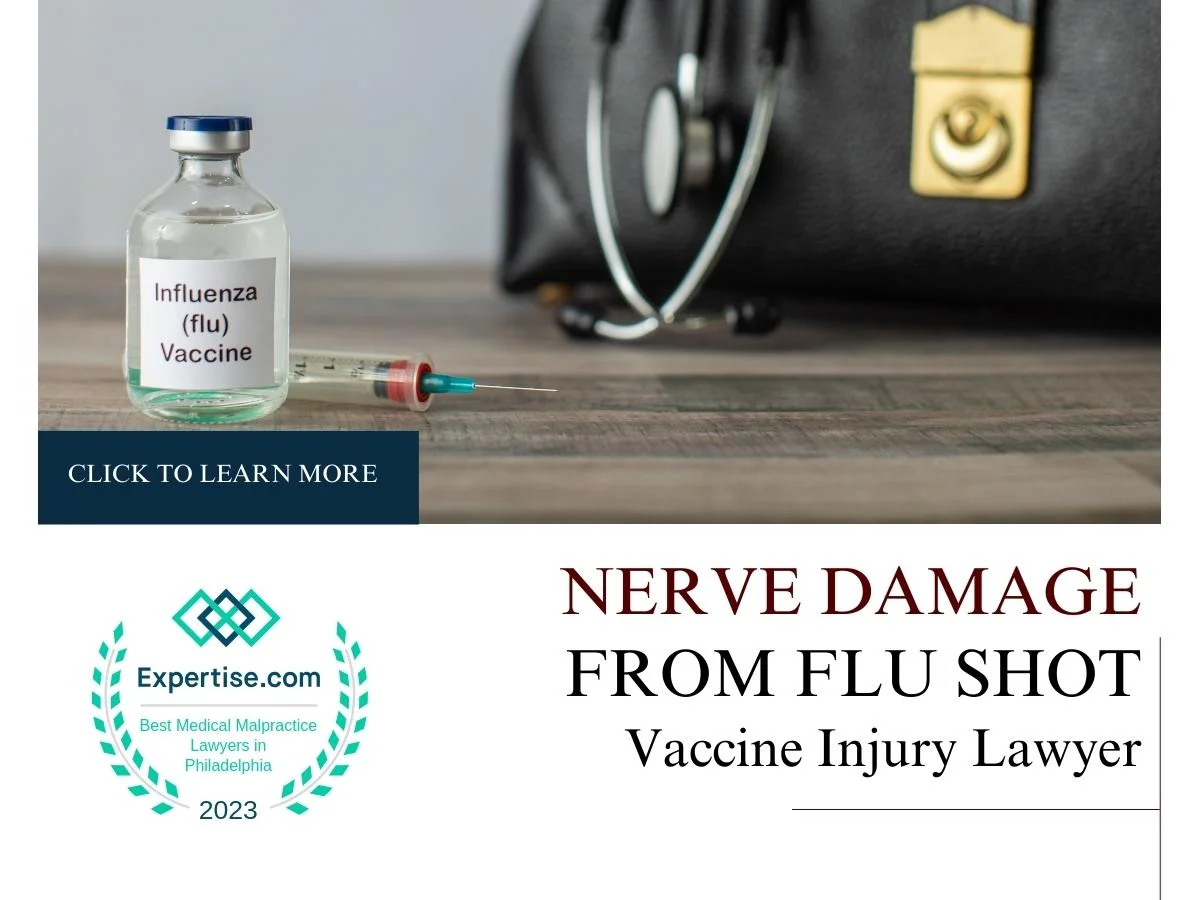Autoimmune Disease After Vaccination: Can You File a Vaccine Injury Claim for an Autoimmune Condition?
Most autoimmune conditions aren’t on the Vaccine Injury Table, but Guillain-Barré, ITP, and others may still qualify for compensation.
4 min read
Vaccine Injury Law Resources / Neurological / Flu Vaccine Side Effects: Understanding Nerve Damage
 Leigh Finfer
:
Feb 23, 2023 12:10:08 PM
Leigh Finfer
:
Feb 23, 2023 12:10:08 PM
Soreness at the injection site is expected after a flu shot. But when that discomfort turns into numbness, tingling, or muscle weakness that doesn’t go away, it may be something more serious, nerve damage tied to vaccine-related injuries.
A 2025 review published in Cureus outlined multiple neurological complications reported after influenza vaccination, including Guillain-Barré Syndrome, transverse myelitis, Bell’s palsy, and encephalitis. These conditions are rare, but when they happen, they can result in long-term disability and in many cases, they qualify for financial compensation under the Vaccine Injury Compensation Program (VICP).
We're not health care providers. We're vaccine injury lawyers who work with clients diagnosed with post-vaccine nerve damage, helping them build claims, collect records, and pursue injury compensation through a federal legal process. If you've experienced symptoms after your flu vaccination, the legal system may offer more support than you think.
Not all flu shot injuries are caused by the vaccine itself. Many result from how the shot is given. Most flu vaccines are injected into the deltoid muscle, the thickest portion of the upper arm. But when the needle goes too high, too deep, or at the wrong angle, it damages nearby peripheral nerves, like the radial nerve. This is called improper vaccine administration, and it's one of the leading causes of brachial neuritis, SIRVA, and long-term nerve damage.
In other cases, the body triggers an unexpected inflammatory response to the vaccine, affecting the nervous systemdirectly. This is what happens in rare complications like Guillain–Barré Syndrome or transverse myelitis, both of which are recognized on the federal vaccine injury table.
The result is the same: pain, weakness, and limited range of motion. But the cause matters for your claim. If the injury was due to poor technique or immune response, it may qualify under the injury compensation program (VICP), even without proof of negligence.
Most people recover from a flu vaccination with only mild, temporary symptoms. But in rare cases, nerve injuries develop, especially when the injection site or immune response affects the surrounding nervous system.
According to the Centers for Disease Control (CDC) and other public health agencies, you should watch for the following signs of possible nerve damage after a flu shot:
Tingling sensations in the arms, legs, back, or face
Muscle weakness that worsens over hours or days
Numbness near the injection site or extending down the arm
Sharp or burning pain in the shoulder, back, or limbs
Diminished strength or difficulty gripping objects
Loss of muscle control or trouble with coordination
Sudden changes in reflexes or difficulty walking
Pain radiating from the shoulder down the arm (common in brachial neuritis)
Facial drooping, double vision, or difficulty speaking (in rare neurological complications)
Shortness of breath or rising blood pressure in more severe cases like Guillain–Barré Syndrome
If any of these symptoms appear within days or weeks of your influenza vaccination, it may be more than just a typical vaccine reaction. These are often early indicators of serious nerve injuries that may qualify for compensation under the Vaccine Injury Compensation Program.
If any of the symptoms above sound familiar then it's time to speak with My Vaccine Lawyer!
Not every reaction to a flu vaccine is a legal case. Temporary discomfort, mild shoulder pain, or a day of muscle weakness isn’t considered a compensable injury. But if your symptoms last, escalate, or interfere with daily function, you may be dealing with a legally recognized injury under the Vaccine Injury Compensation Program (VICP).
Here’s how to tell the difference.
Pain or soreness that improves within 48 to 72 hours
Mild tingling sensations or limited range of motion that resolves without treatment
Fever, fatigue, or general aches typical of flu vaccine side effects
A single visit to your doctor without follow-up care or referrals
No lasting diagnosis tied to the nervous system, peripheral nerves, or muscle function
These are considered common side effects, not vaccine-related injuries. The VICP does not compensate for short-term, self-limiting symptoms.
Symptoms last longer than 72 hours and continue to worsen
Loss of muscle control, numbness, or nerve pain beyond the injection site
Referral for physical therapy, neurological testing, or orthopaedic surgery
Diagnosed condition such as:
Doctor attributes symptoms to improper vaccine administration or inflammatory reaction
Documented work loss, treatment costs, or permanent changes in movement or strength
These cases often meet the standard for injury compensation, especially if symptoms are documented within a few weeks of vaccination and supported by a medical diagnosis, physical examination, or testing.
You don’t need to prove malpractice. You don’t need to sue your doctor. The system is built to support people who experience rare but serious adverse reactions to vaccinations, including the flu shot.
If your case meets the medical and legal threshold, the federal program covers your financial compensation, including treatment costs, lost wages, and pain from permanent injury.
My Vaccine Lawyer doesn’t just file paperwork, we build strong claims, fast.
Our team focuses exclusively on vaccine injury cases, with a track record of securing compensation for clients diagnosed with nerve injuries after flu vaccination, cases involving brachial neuritis, Guillain–Barré Syndrome, radial nerve damage, and more.
We collect your medical records, get expert input when needed, and file directly in Vaccine Court under the National Vaccine Injury Compensation Program. Every step is handled by attorneys with direct experience in this field, not generalists.
If your case qualifies, we push aggressively to get it compensated.
A vaccine injury is any serious complication that results from a vaccine, such as nerve damage, severe allergic reactions, or a rare autoimmune disorder like Guillain–Barré Syndrome. Injuries linked to improper administration, such as incorrect deltoid intramuscular injection, also qualify.
Compensation depends on how the injury affects your life. If the damage limits your mobility, requires ongoing care from a physical therapist, or causes lasting pain, you may be eligible for:
Up to $250,000 for pain and suffering
Full reimbursement for out-of-pocket medical costs
Lost wages if you're unable to work
Future treatment costs for conditions like parsonage turner syndrome or other nerve injuries
Injuries involving long-term damage to nerve cells, or those caused by improper administration like incorrect deltoid intramuscular injection can lead to higher compensation, especially when supported by a strong physical exam and medical documentation.
If your initial injury caused persistent symptoms like pain, weakness, or nerve issues and required a physical exam, follow-up care, or a physical therapist, it may be compensable. Many injuries are reported through the Adverse Event Reporting System, even weeks after the influenza vaccine.
No, you don’t sue your doctor or the manufacturer. Vaccine claims are filed through a federal system that covers injuries caused by most vaccines, including the flu shot, tetanus, and other vaccines listed in the program.
Claims go through the Vaccine Injury Compensation Program, not the regular court system. You’ll need medical records, proof of diagnosis, and documentation of treatment. We handle that process for you from start to finish.
Leigh A. Finfer is a vaccine and personal injury attorney at Muller Brazil and My Vaccine Lawyer. Mrs. Finfer has been with the firm since June 2018 and her practice includes representing vaccine injury victims, personal injury victims, and those who suffer injuries as a result of unsafe drugs and medical devices.

Most autoimmune conditions aren’t on the Vaccine Injury Table, but Guillain-Barré, ITP, and others may still qualify for compensation.

Millions of people get the flu shot each year to protect themselves from the seasonal flu. While generally safe, the flu vaccine has been linked to...

Suppose you have recently received a flu shot and are experiencing tingling sensations in your arm and hand. In that case, you may be concerned about...
